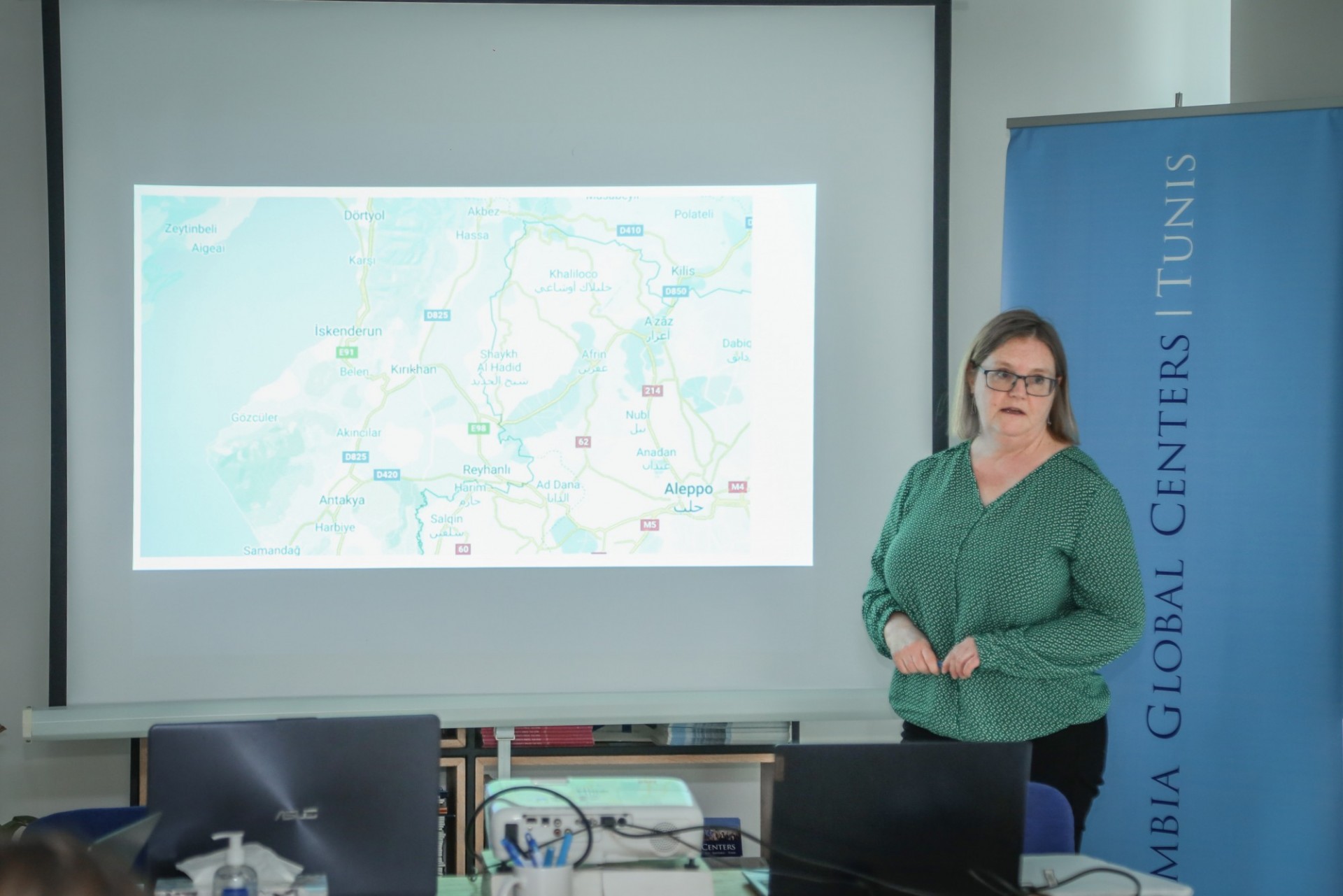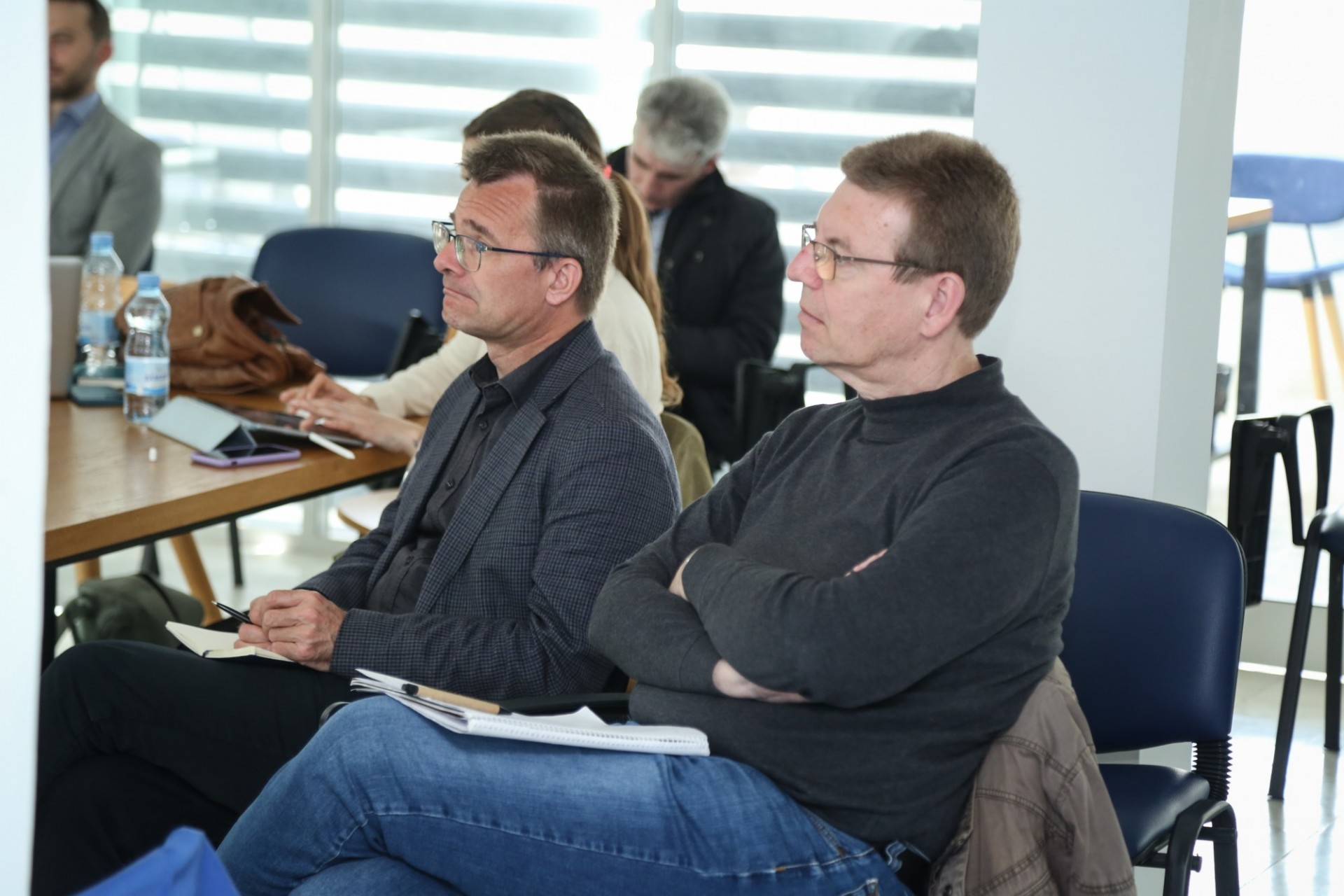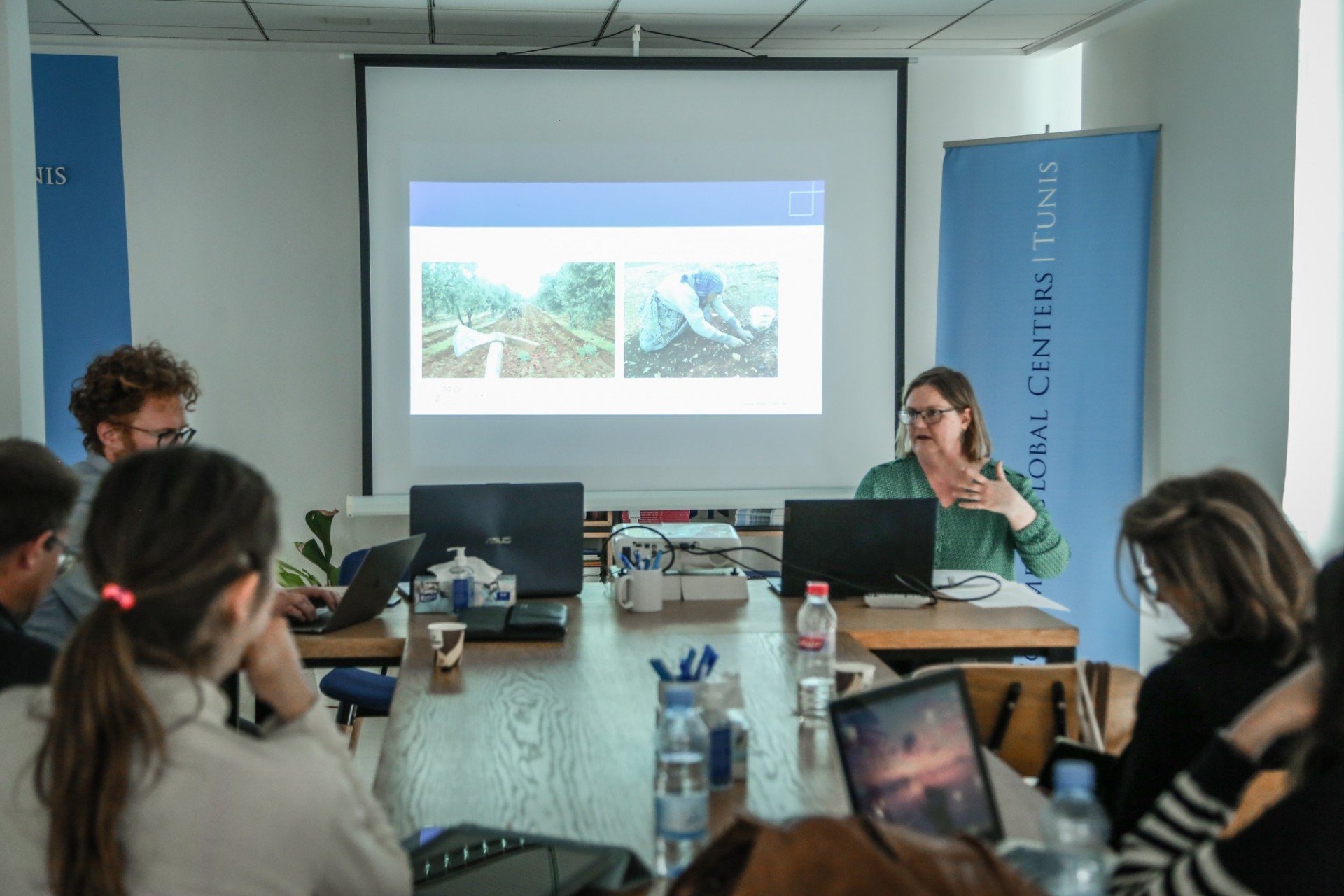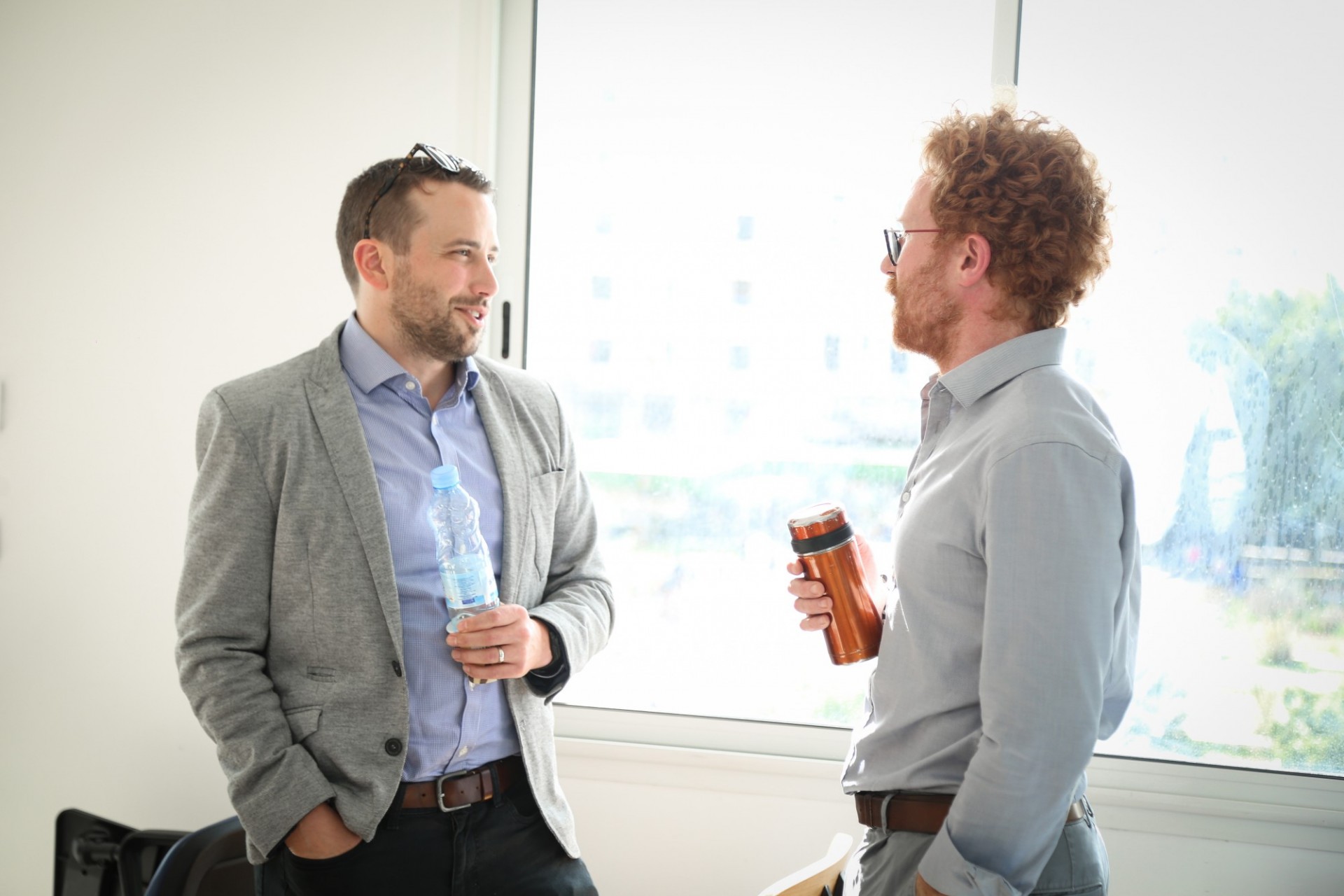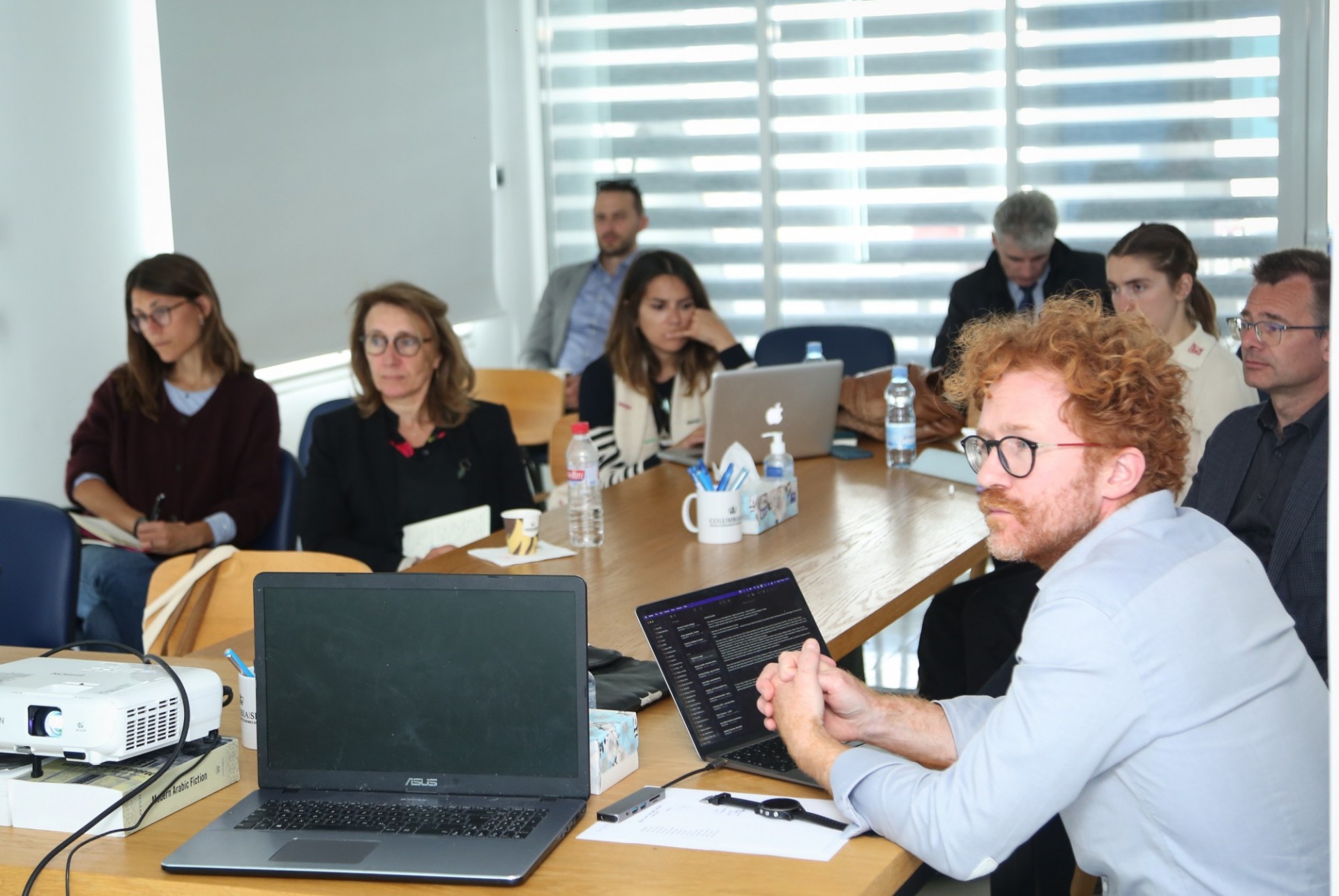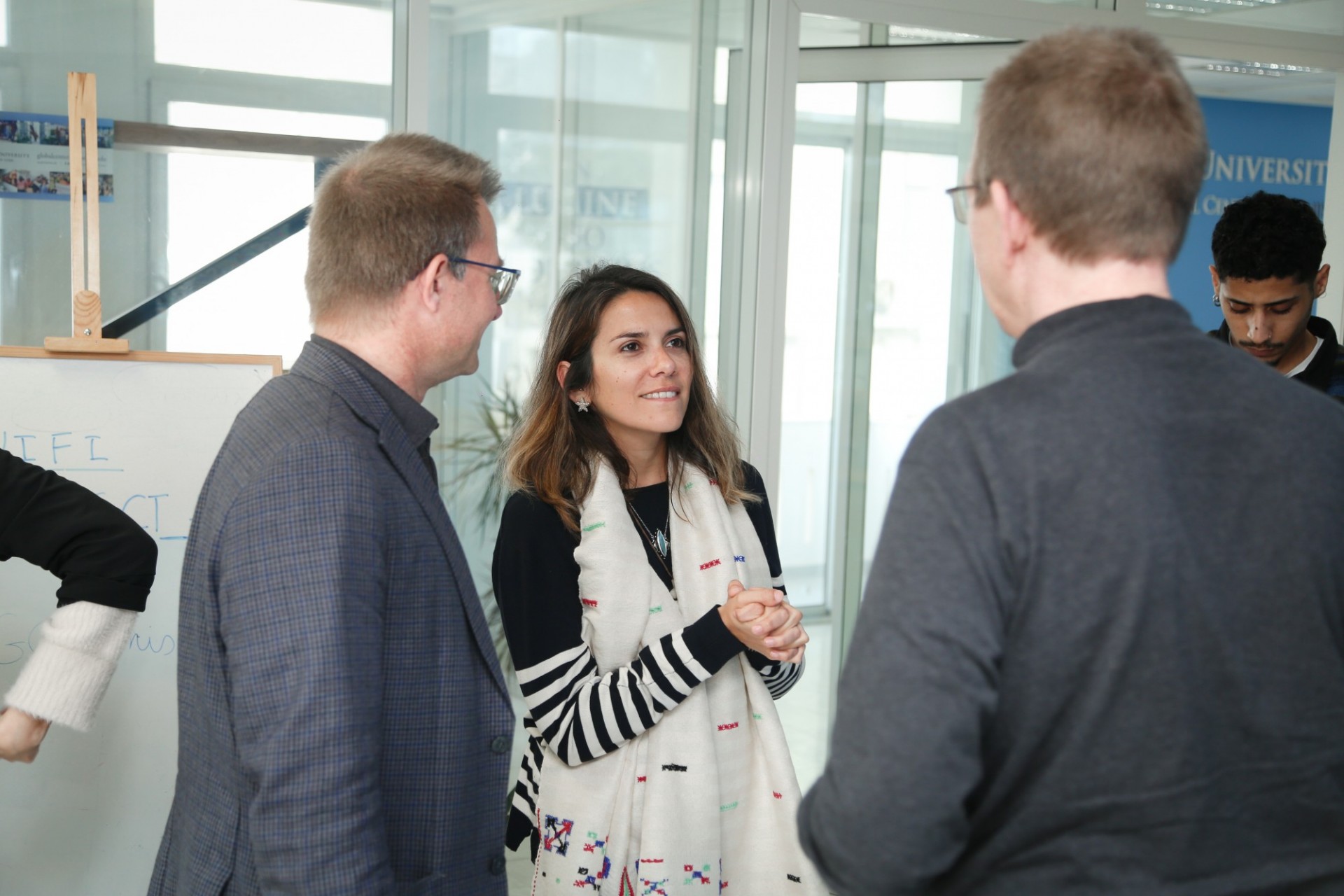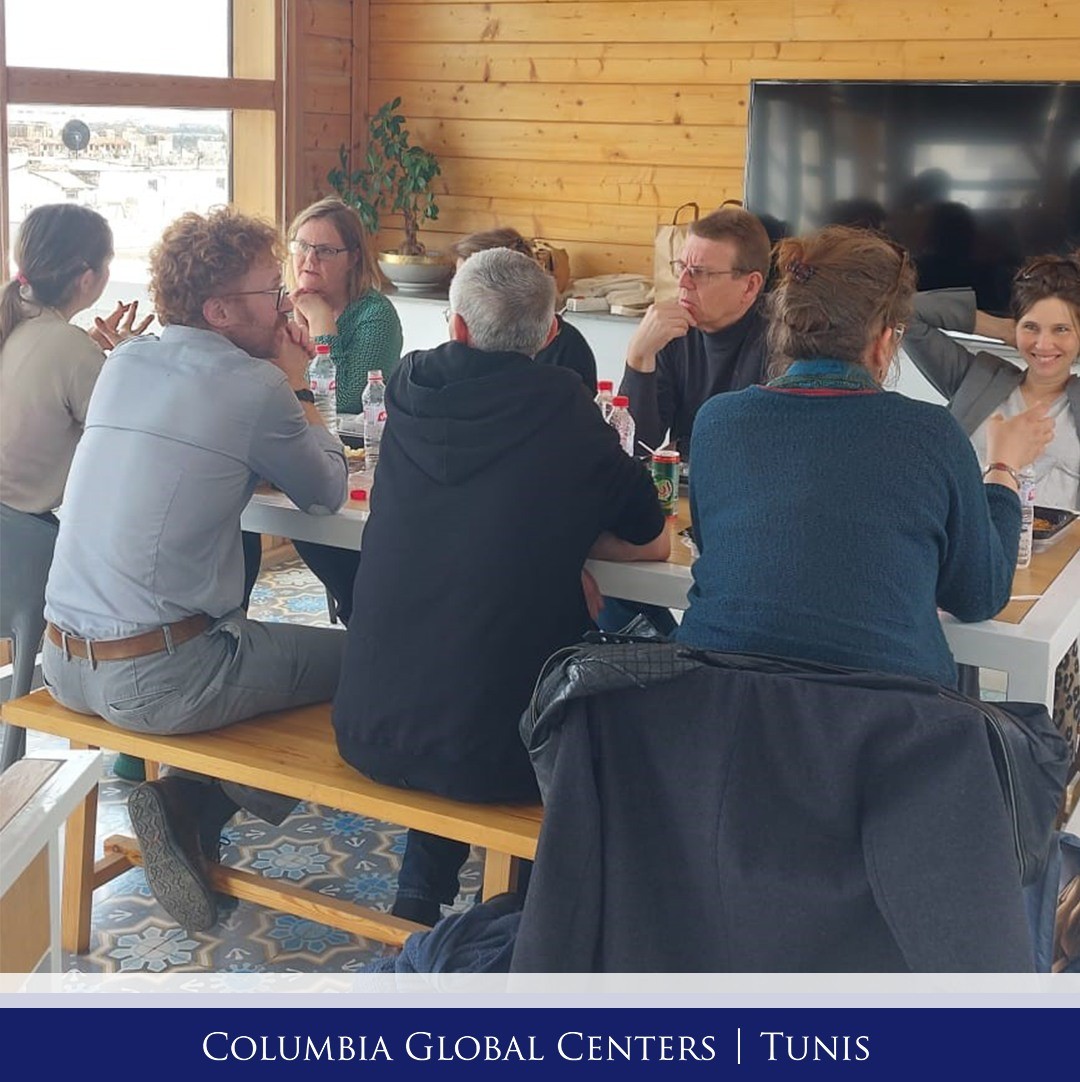“Now is not the Time”: violence, disparity and temporal disorder in olive cultivation
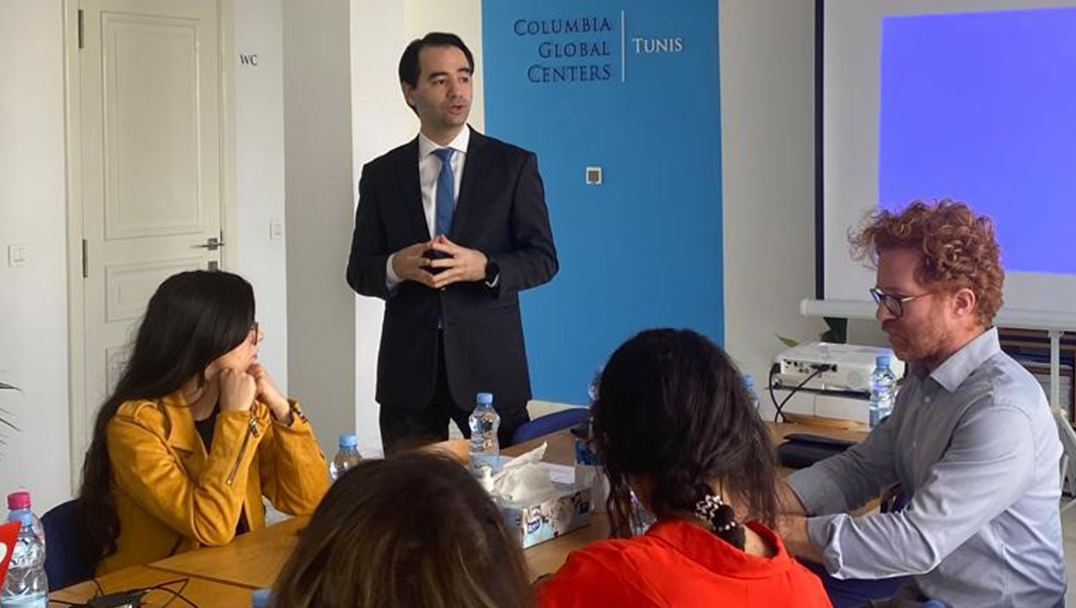
On March 15th, Columbia Global Centers I Tunis hosted, in partnership with Institut de Recherche sur le Maghreb Contemporain (IRMC), a workshop on the nexus between current affairs and climate change, followed by a discussion on our rooftop and a public lecture on the impact of conflict on olive cultivation.
Five master's students, who are supported by FTDES to do research projects on environmental topics from a social science perspective, had the chance to present their projects during the morning workshop. This provided an excellent opportunity for researchers from different generations to exchange ideas and discuss under-researched areas and the current state of the art of social science research on environmental themes in the MENA region.
The public lecture, led by Pr. Katharina Lange, Head of the Research Unit Environment and Justice at the Leibniz Zentrum Moderner Orient in Berlin, focused on the impact of conflict on the region of Afrin in Syria, through the lens of practices and representation of cultivation and planting.
More about the public lecture:
The occupation of Syria’s Afrin region by Islamist militias under Turkish control in 2018 has brought about far-reaching demographic change. Displacing a large part of the region’s Kurdish population, it brought an influx of settlers opposed to the Asad regime, many but not all of whom have been forcibly displaced themselves. In this borderland marked by past conflict and ongoing violence, future-making projects are deeply intertwined with despair, loss and dispossession experienced by the original inhabitants.
These issues were focused through the lens of practices as well as representations of cultivation and planting. Agriculture, notably olive cultivation, has long provided income, work, and stood for local and even ethnic identities in this region. After 2018, among other transgressions, local farmers have been violently dispossessed by the seizing or “taxing” of the olive harvest and other crops; orchards have been damaged by grazing livestock, fruit trees have been cut and sold for firewood or uprooted and removed for infrastructural as well as military projects. These dynamics have profound temporalizing effects, as the short-term profits made by dispossession and looting, but also the claims to future political and demographic domination expressed through construction, are juxtaposed to decades of past care invested in fruit trees and agriculture. Drawing from published reports and accounts on social media as well as conversations with (former) inhabitants of the region, this paper maps these violent changes before the backdrop of agrarian practices and social relations prior to 2018, and interrogates where and for whom there may be time to envisage and plan the future in this setting.
More about the speaker:
Pr. Katharina Lange is a Senior Research Fellow at Leibniz-Zentrum Moderner Orient, Berlin (ZMO) where she currently directs the research unit "Environment and Justice". She received a PhD and a Habilitation in Cultural Anthropology from the University of Leipzig, Germany. Her research interests include local history and politics of memory, environmental issues, agrarian practices and rural life, as well as impacts of war on everyday life. Her regional foci are Syria and Iraqi Kurdistan. Among other venues, Katharina's research has been published in Economic Anthropology, Journal of the Social History of the Orient, and Memory Studies. She also curated a short animated film (https://www.youtube.com/watch?v=n2nN5S2yzBw) and an online exhibition about everyday connections between Syria and Germany as they are experienced by Syrian refugees in Germany.
